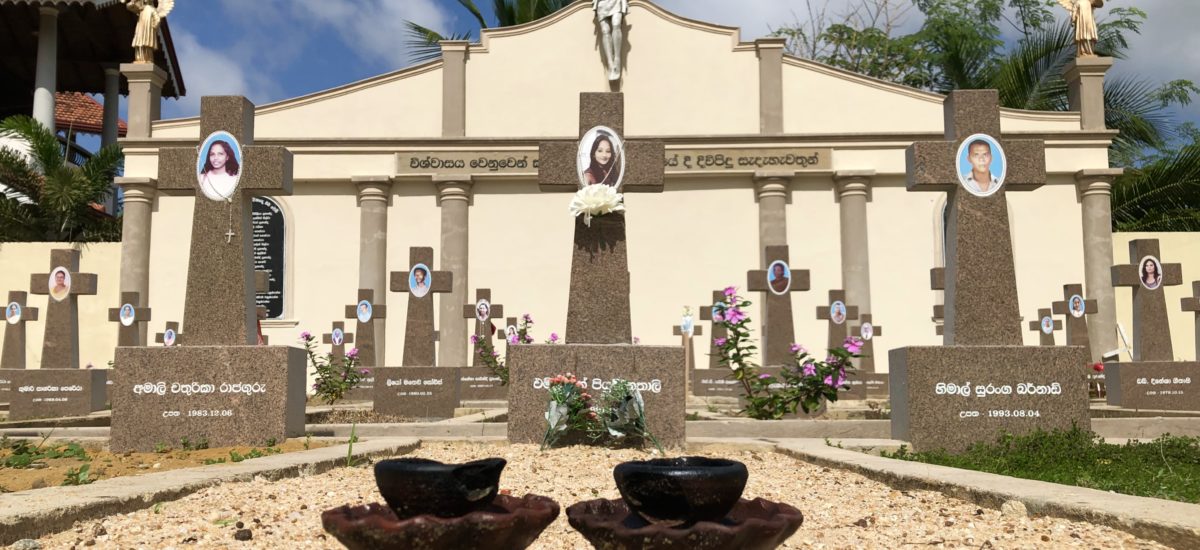Photo Courtesy of Aleena Cader
Today is the International Day of Remembrance and Tribute to Victims of Terrorism.
In Sri Lanka, the word terrorism embodies an experience that stretches over 30 years, the most recent being the brutal and unprecedented attacks on Easter Sunday in April 2019. The well-coordinated and widespread attacks targeted Christian worshippers in churches across the island as well as locals and tourists in luxury hotels, killing 269 people in total.
When Groundviews visited St. Sebastian’s Church, Katuwapitiya, the priest in the office said that survivors of the bomb explosion in the church were still traumatised by their experiences and that reliving their stories only brought more pain and suffering.
“Telling their stories rekindles the anguish. Some of them even want to end their lives because of what they have faced,” he said.
Many have honoured the victims and families whose lives have been shattered by the explosions. But the impact of such indiscriminate violence is far reaching, with some survivors having to endure their pain in silence. *Imran is one such victim from Beach Road, Negombo.
This is his story.
The impact of terrorism does not end with the physical destruction of an explosion. It is carried into the future through the mental anguish and trauma felt by those left behind, the ensuing social divides that tear communities apart, and the economic strain on people caused by the ripple effect of the events.
As a resident in the area, Imran has lost friends and loved ones. As a shop owner in Negombo he faces endless economic hardships, now exacerbated by the Covid-19 pandemic. As a Muslim he faces the added burden of blame for the attacks that have changed his own life, and the constant fear and threat of being targeted by angry mobs. But he is hopeful of a better future, where all communities can live in harmony.
*Name changed to protect the privacy of the individual.

